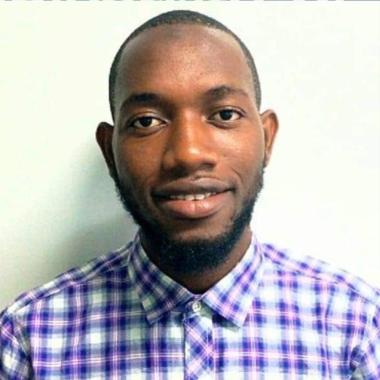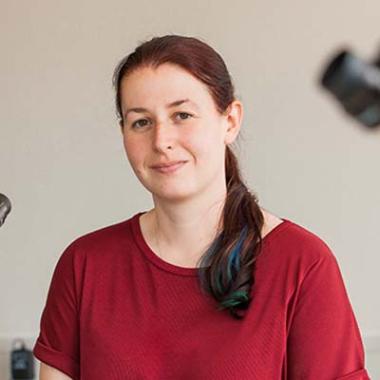Subject overview
We focus on authentic learning, ensuring the skills you learn and knowledge you acquire will help you in the world of work. Our courses provide cutting-edge academic ventures for students who want an excellent understanding of biological and biomedical sciences, as well as their interface with modern technologies. Through innovative research, hands-on practical experiences, and collaboration with industry experts, you’ll gain a solid foundation to tackle real-world challenges and contribute to the progress of science and healthcare.
Courses
2026/27 Full-time
- Biochemistry BSc Honours
- Biochemistry with Foundation BSc Honours
- Biological Sciences BSc Honours
- Biological Sciences with Foundation BSc Honours
- Biomedical Science BSc Honours
- Biomedical Science with Foundation BSc Honours
- Medical Sciences BSc Honours
- Pharmacology and Physiology BSc Honours
- Pharmacology and Physiology with Foundation BSc Honours
2026/27 Part-time day release
2026/27 Full-time
Known for our combination of pure, practice-led and applied approaches, and for using our knowledge for the betterment of society we offer PhD, MPhil, DProf and MRes study. We can provide you with guidance on how to write your research proposal and our entry requirements for a Research Degree.
Apprenticeships are offered by employers and combine work and study. They are an alternative way to achieve a university degree while gaining work experience and without being in full-time education.
We have a long track record of working with organisations and individuals to develop their professional and personal skills, offering accredited courses and industry recognised certifications.
View our available courses for professional and personal development.
2026/27 Full-time
- Biochemistry BSc Honours
- Biochemistry with Foundation BSc Honours
- Biological Sciences BSc Honours
- Biological Sciences with Foundation BSc Honours
- Biomedical Science BSc Honours
- Biomedical Science with Foundation BSc Honours
- Medical Sciences BSc Honours
- Pharmacology and Physiology BSc Honours
- Pharmacology and Physiology with Foundation BSc Honours
2026/27 Part-time day release
2026/27 Full-time
Known for our combination of pure, practice-led and applied approaches, and for using our knowledge for the betterment of society we offer PhD, MPhil, DProf and MRes study. We can provide you with guidance on how to write your research proposal and our entry requirements for a Research Degree.
Apprenticeships are offered by employers and combine work and study. They are an alternative way to achieve a university degree while gaining work experience and without being in full-time education.
We have a long track record of working with organisations and individuals to develop their professional and personal skills, offering accredited courses and industry recognised certifications.
View our available courses for professional and personal development.
Next open days
Careers
Industry links
Our programmes offer comprehensive skills and knowledge for diagnostic, academic, and industrial laboratory practice. Our strong industry connections provide you with access to internships, placements, and collaborative projects, boosting your employability and research prospects at every level. Many of our courses are accredited by professional bodies, providing you with a solid academic framework, whilst also meeting employers' requirements.
Job roles
Students are well equipped for a variety of careers in hospitals, laboratories, and major pharmaceutical organisations both locally and globally, in areas such as:
- Graduate management programmes
- Healthcare management
- Medicine and biomedical research
- Biomedical research
- Clinical laboratory technology
- Forensics
- Biotechnology
- Biomedicine
- Environmental sustainability
- Pharmaceuticals
ZONE29: OUR NEW HOME OF CAREERS AND ENTERPRISE
Our doors are set to open in spring 2026, but a wide range of opportunities are available now, including:
- jobs, placements and work experience
- tailored career guidance and mentoring
- career planning through the Westminster Award
- work and study abroad programmes
- help with developing your own business or freelancing
Westminster Stories
Dr Kalpana Surendranath wins Outstanding Woman in STEM category at PRECIOUS Awards 2025
Dr Kalpana Surendranath, Reader in Genome Engineering, won the PRECIOUS Awards 2025 in the Outstanding Woman in STEM category for her trailblazing work in inclusive science education and genome engineering.
Westminster doctoral researcher contributes to study revealing hidden diversity of E. coli in diabetic foot infections
Second-year doctoral researcher, Victor Ajumobi, was the first author of a recently published paper revealing the hidden diversity of E. coli in diabetic foot infections.
Westminster helps close NHS England tissue and blood genomics skills gap with bespoke training aiding cancer diagnosis
We have been awarded a years-long national contract with NHS England and the National School of Healthcare Sciences (NSHCS) to develop and deliver two new Postgraduate Certificates in Genomics, ultimately leading to closing the skills gaps currently hindering the diagnosis of some cancers.
Chat with our students
Ask some of our current students about their experience of life at the University of Westminster.
What our students say

Bibi Farheen Rohomun
BSc Biomedical Science
Medical Laboratory Assistant
| North Middlesex Hospital
It was an incredible experience to be a part of the university. I got to meet many inspiring individuals.

Karamo Conteh
Biomedical and Physiological Sciences FDSc
Trainee Scientific Officer | Medical Research Council Unit (Gambia) at London School of Hygiene and Tropical Medicine
The lecturers are very proactive. They are always willing to support and guide students to achieve their dreams.

Victoria Heath
Biomedical Sciences MSc
Deputy Trust Lead Healthcare Scientist | Great Ormond Street Hospital
I found the course well-structured and supportive for students working alongside their studies.
Video gallery
Related pages
Contact us
Contact our Course Enquiries Team:
Opening hours: 10am–4pm Monday to Friday






